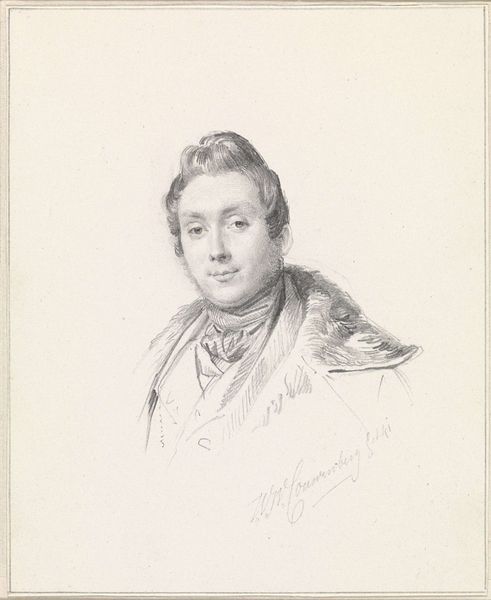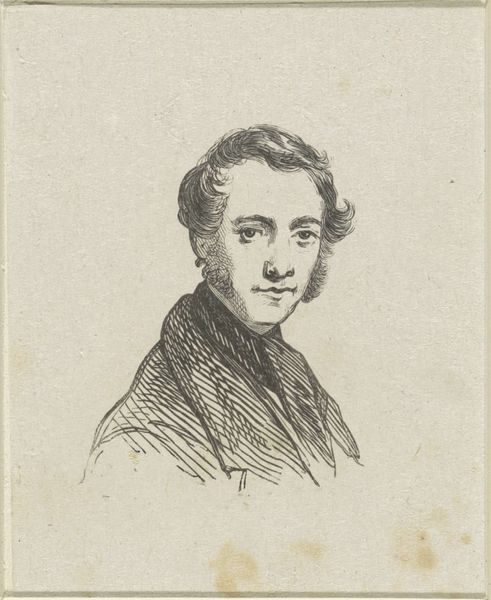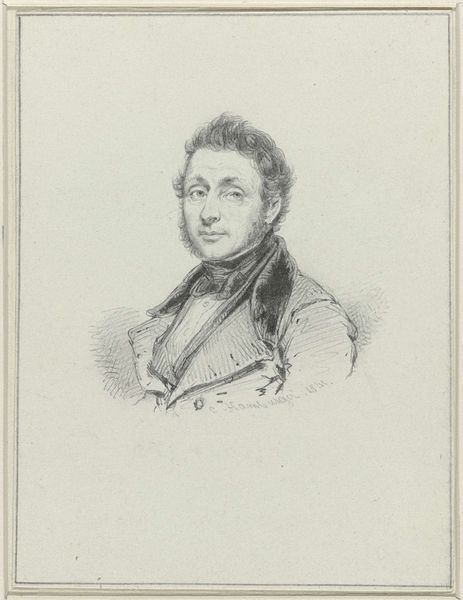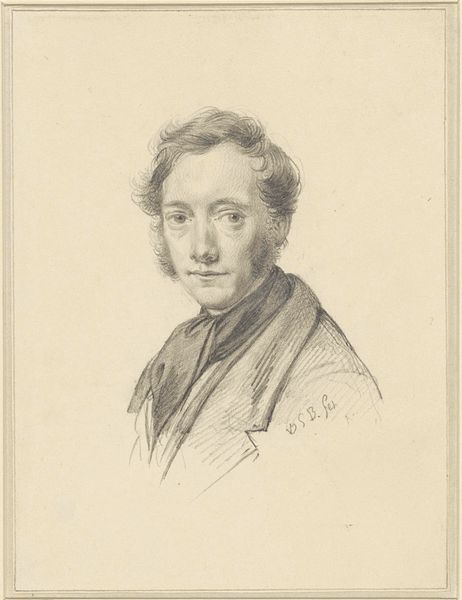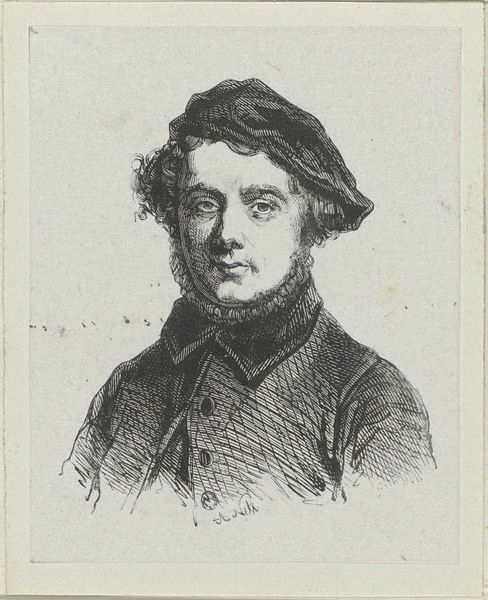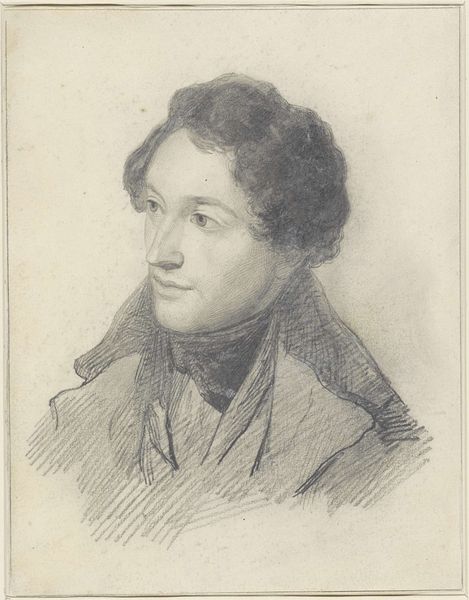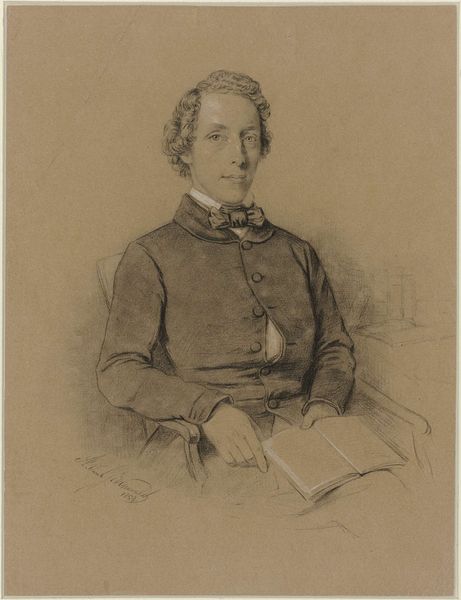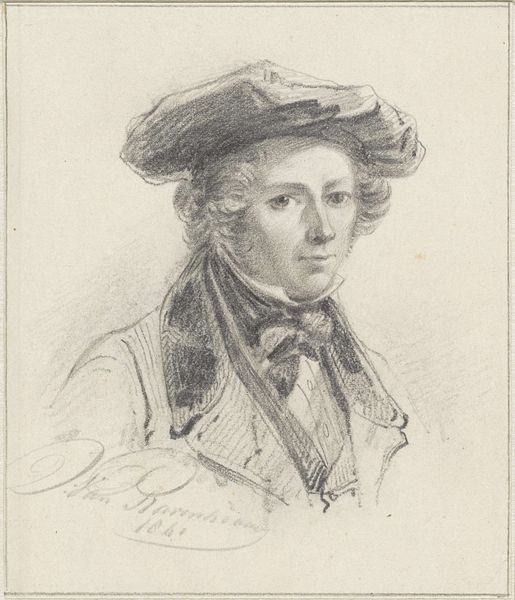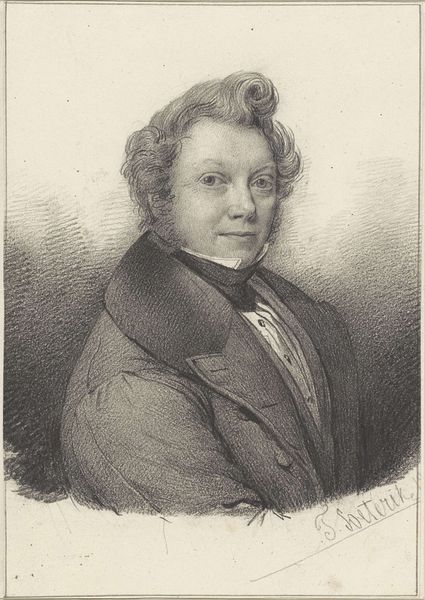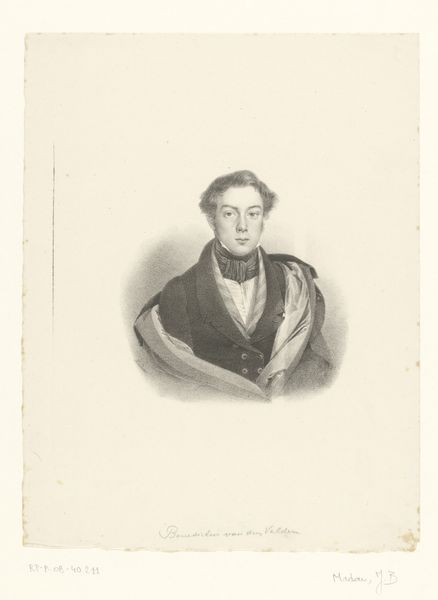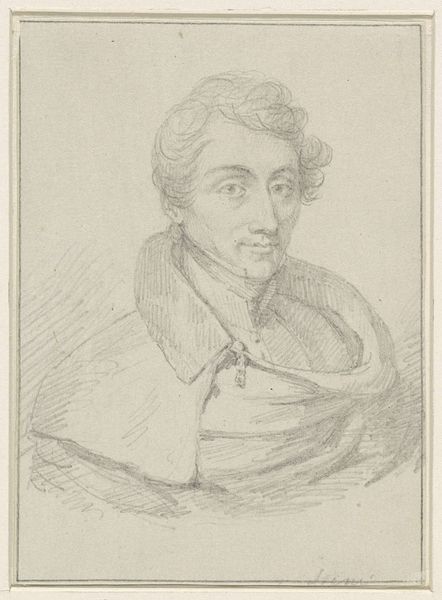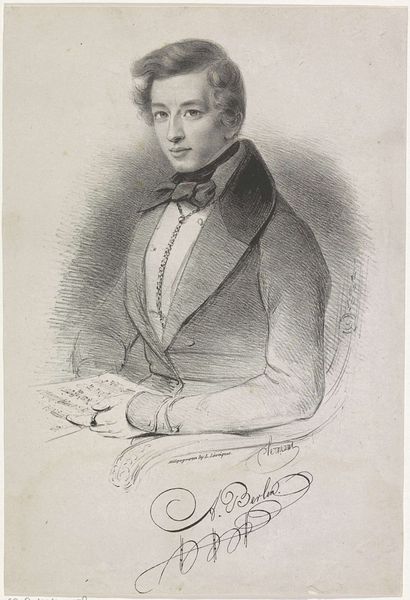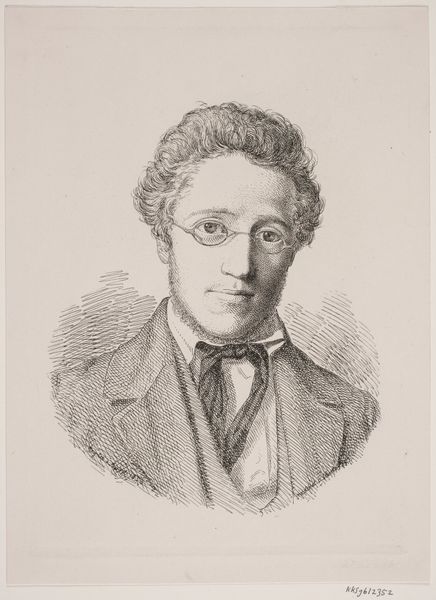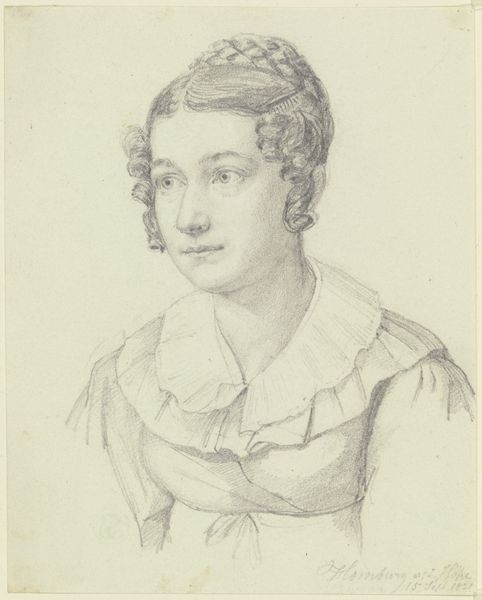
drawing, pencil
#
portrait
#
pencil drawn
#
drawing
#
pencil drawing
#
romanticism
#
pencil
#
portrait drawing
Dimensions: height 127 mm, width 97 mm
Copyright: Rijks Museum: Open Domain
Editor: This is Petrus Emanuel Dielman’s Self-Portrait, a pencil drawing from between 1810 and 1858. There's a striking directness in his gaze, yet he's looking off to the side. It feels intimate. What do you see in this piece? Curator: It is definitely intimate, and more than that. Look at the way Dielman depicts himself during a tumultuous period marked by revolutions and shifting social structures. The gaze directed off-center feels almost defiant, as though resisting being fixed or categorized within those dominant structures. Considering he lived through times of immense societal change, what narratives of self and resistance do you think he might be trying to construct? Editor: That's interesting! I hadn't considered it as an act of resistance. Maybe the averted gaze implies a critical distance from the conventional expectations of portraiture at that time? Curator: Precisely! We might even read it as a subtle form of protest against the pressure to conform. Think about the societal expectations of artists, particularly regarding self-representation, during the rise of Romanticism. Could his refusal to meet our gaze head-on be a deliberate choice to challenge those power dynamics, a way of reclaiming agency over his own image? It speaks to the intersections of identity, representation, and resistance. Editor: So, this seemingly simple drawing contains all these layers of societal critique. I’ll never look at a portrait the same way. Curator: Art invites us to explore those complex narratives. It challenges us to recognize how social forces are embedded within artistic choices. And understanding those layers is, in itself, a powerful act.
Comments
No comments
Be the first to comment and join the conversation on the ultimate creative platform.
